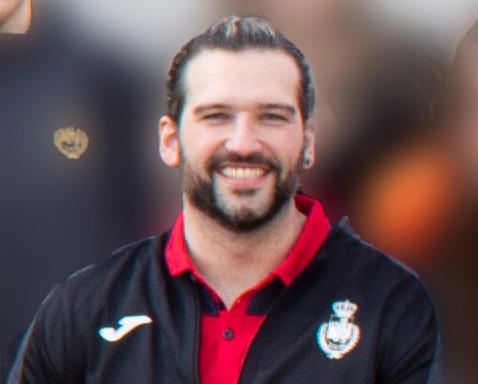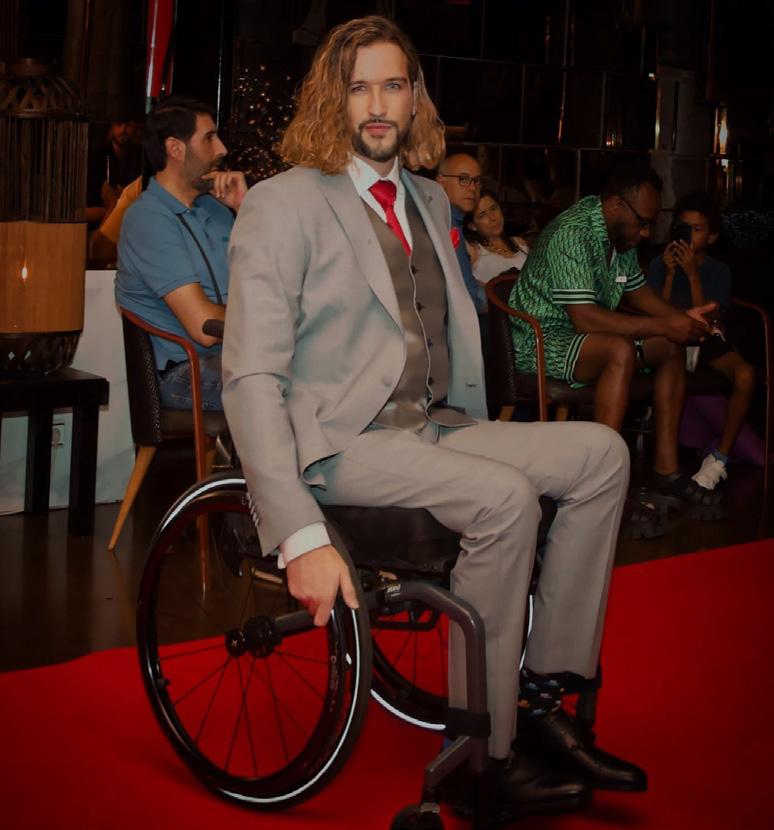
2 minute read
Solidarity Heart
Victor Fernández Amez
Spanish chair handball national team player
Advertisement
Victor is a Leonese handball player whose life was changed by a motorcycle accident in 2019, and he is currently part of the Spanish wheelchair handball team.
How did wheelchair handball come about?
Since I was a child, I had always played handball. After my accident, when I had been in the hospital in Toledo for just a month, a guy came to see me on behalf of Oscar Perales (founder of Inclusport). But at that moment, with my ribs and sternum fractured, it was too early. I had crossed paths with Oscar when I started training with the first team, and he was with Ademar at that time. Later, after speaking with Oscar several times in person, he managed to spark my interest in this sport, and here I am.
What is the current situation of wheelchair handball?
We are in a process of growth. A national team has been formed with players from existing clubs in Spain, currently from Madrid, Valladolid, and Zaragoza, although they are looking to incorporate other sports centers. The national team has already competed internationally, par- ticipating in a European championship and a World championship, finishing in fifth place. The intention of the International Handball Federation is to gradually shape this discipline, as it was planned to become a Paralympic sport in Los Angeles 2028, but it has not been possible so far. In order to achieve that in the future, European and World championships will be held in alternate years, similar to conventional handball.
How was your personal experience in the World championship and the European championship?
I have always had the desire to play with the greats. I had reached the point of sharing training sessions with them but never made my debut. Today, being able to compete with international teams is fulfilling a dream for me, so the experience of the World championship and the European championship is something unforgettable. I am now very excited about the upcoming event we have in June in Lyon, the Euro Hand4 All, where six national teams will participate.
“You find challenges, not obstacles” is a phrase you use a lot. What is the key behind it?
After my accident, I have learned many things. I have had to work a lot on a psychological and emotional level. Everyday things like climbing stairs have become more complicated, but there is always an alternative way to do it. At first, they may seem like insurmountable obstacles, but with tenacity, I have found a way to overcome them.
On a professional level, you are a Computer Engineer, but you have leaned more towards social media. Have you always been so focused on social media?
Yes, I have always been intrigued by how a person can influence so many others and make a living through content creation. Before, with my job as an engineer, I didn’t even have time to consider it. With the change in my situation, I have regained what truly excites me, which are social media platforms. I believe they are a platform through which I can help many people who have had a similar experience to mine.
Your nickname is @JhakoWheelchair. What does Jhako mean?

It comes from my friend Jacob Meliá, who was a goalkeeper for Ademar, and we affectionately called him Jhako. Later on, I also gave the same nickname to another teammate from Balonmano La Virgen, but in the end, I ended up being called Jhako, even in university.
You have also started working as a model. Do you have plans in this industry?
I received a call from Claudia Modelos and Arnelia World. In particular, the latter supports the Integra association, whose mission is to bring the world of fashion and advertising to talent with disabilities. It’s a social impact project that integrates, includes, and normalizes models and actors with physical, mental, or sensory disabilities. I have










